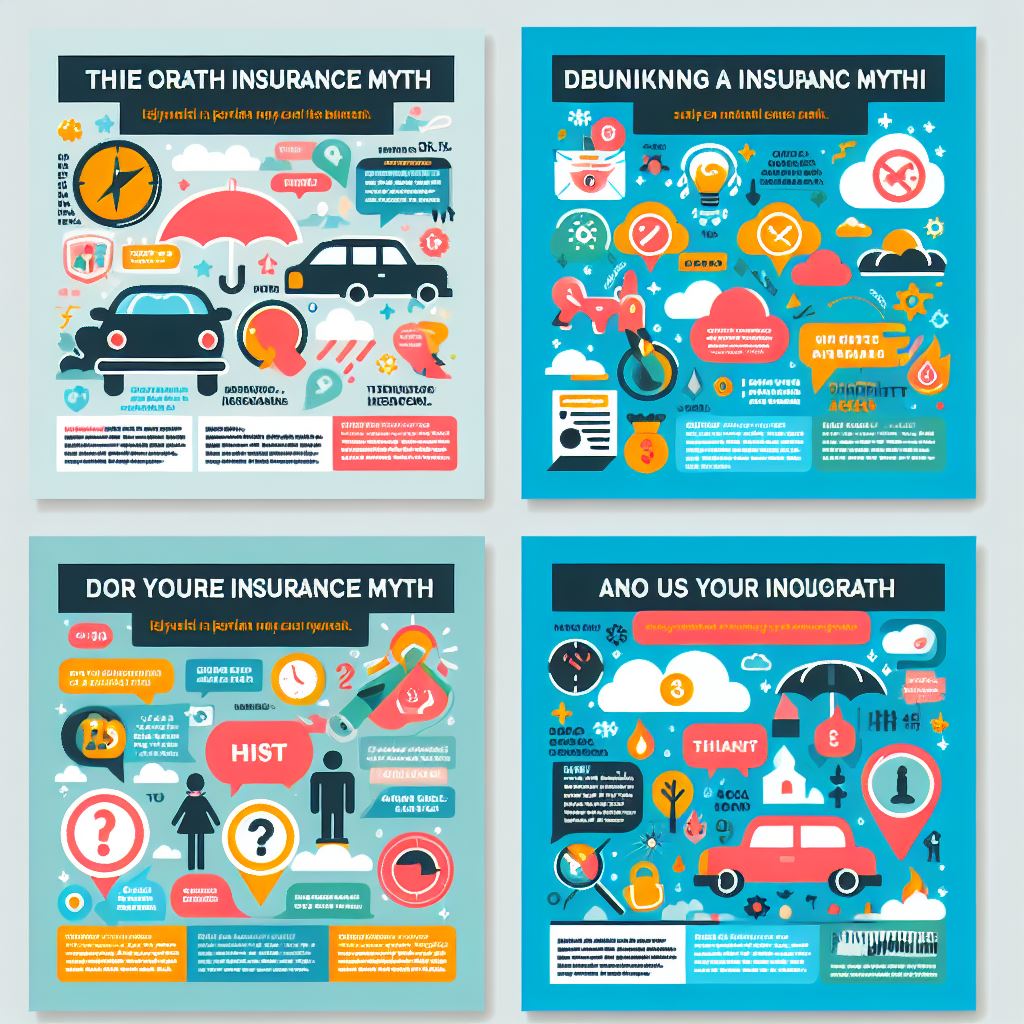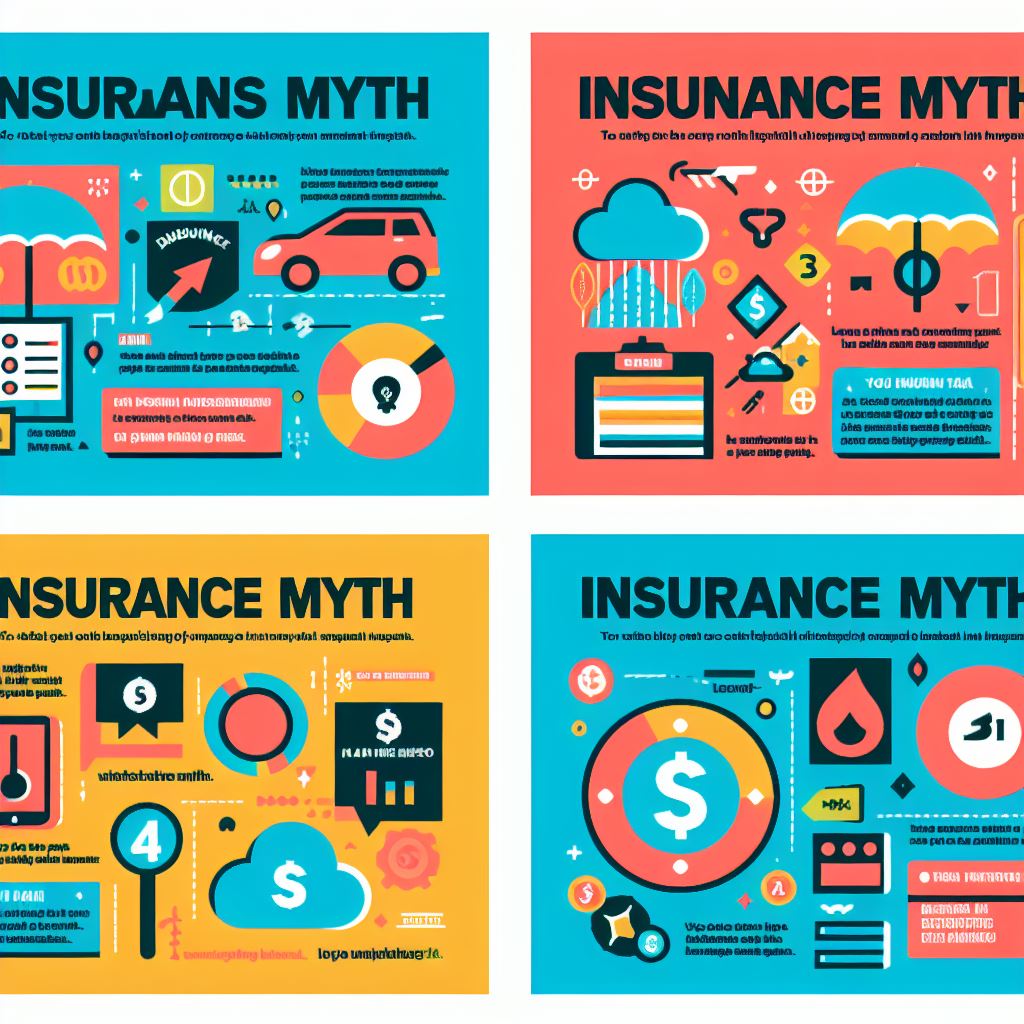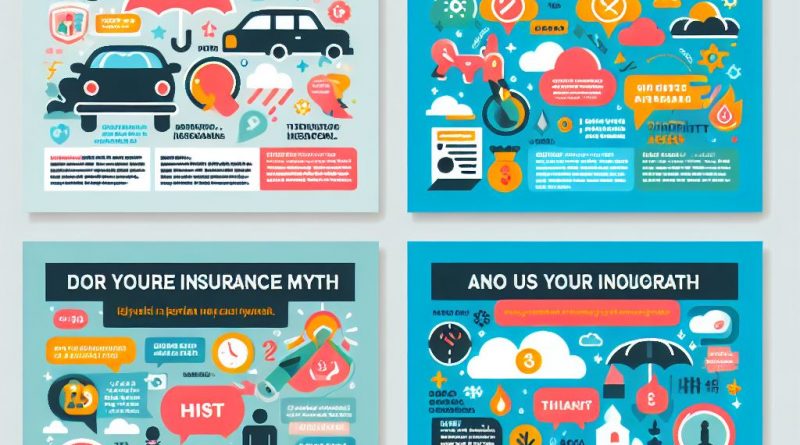Common Insurance Myths: It is critical to dismiss all misconceptions
Common Insurance Myths
Yet, it is worth mentioning that multiple Common Insurance Myths create a big gap in people’s comprehension of the real insurance picture and generate wrong decisions about setting up relevant coverage. Many myths are a result of misunderstood, outdated, or simple ways to obtain policies, which complicate matters at times. Here, take off the mask of some widely spread insurance myths and let us see the reality of insurance coverage.

Common Insurance Myths #1: Plugged-in Coverages
Besides this, one of the most popular Common Insurance Myths is the perception that insurance policies are essentially completely inclusive; they offer wide coverage. Unfortunately, one has to be cognizant that insurance policies are only meant for risks and perils identified in the policy document. Insured people are required to thoroughly familiarize themselves with their coverage limits, exclusions, and deductibles to understand what services are covered or put out of pocket. Failure to anticipate that all covered having saved money for a claim may end up paying more costly surprises.
Common Insurance Myths #2: Medical insurance is an expensive necessity for people who cannot afford full-cost healthcare.
Many consumers believe that purchasing insurance is too costly because of the common insurance accusation that it is costly to them. Even though insurance rates can change based on factors like age, place of residence, and risk profile, relatively less expensive coverage is available than the considerable costs of no insurance at all. Spontaneous cases that may be a sudden car accident, a natural disaster, or an emergency case may cause significant financial ruin with uninsured protection.
Common Insurance Myths #3: Renewals Are Auto, Can Be Canceled, or Can Easily Be Extended at the Users’ Convenience.
The last in our insurance myth circle is the idea that insurance contracts, upon their expiration, will be automatically renewed, thus requiring no action from anyone involved in the process. In essence, while you expect to be automatically renewed, you must check and redeem it before the expiration date. Leaving behind even a small coverage gap may leave the person and anyone else’s possessions open to attack. Renewal dates are something that one should not lose sight of. It is crucial to ensure that policies are active and up-to-date.
Common Insurance Myths #4: Denials Are Always the Exception
Some individuals hold a perspective known as the Common Insurance Myths that insurance societies will always seek to avoid payments even if claims are properly and faithfully made. It is also supported by the fact that insurers diligently review claims when they commit a mistake to prevent fraud, yet the claims of the insured are generally agreed upon by them to which they adhere to the policy’s coverage terms. The policyholders of insurance companies can increase their chances of filing a successful claim by being honest, following scripts, and maintaining documents.

Common Insurance Myths #5: All the belongings are completely paid for.
Aside from these Common Insurance Myths, homeowners’ or renters’ insurance policyholders believe that the possessions in their house, except acts of God or theft, may be claimable. Contrary to that, a policy normally contains an umbrella, especially for higher-value items such as jewelry, fine art, or collections. Understanding this limit and admitting public service provision is a key factor in sufficient insurance coverage.
Explanations and Conclusions
One of the main things individuals and businesses should consider is learning about myths related to insurance to make informed and right decisions about the insurance services they need. The knowledge of insurance coverages enables consumers to stay clear of the costly wrong notions and have the correct insurance protection in place.
It is of the essence to keep in mind that assurance policies are strictly legal agreements, and you need to review them in-depth and understand their terms and conditions. Working with knowledgeable insurance experts, asking pertinent questions, and weighing available coverages will aid in understanding insurance myths better and also allow policyholders to acquire adequate coverage.
Astonishingly, there are different rules as to how social media can be employed to achieve organizational goals.
This is because various rules and regulations are being established for the protection of consumers and for fair practices to be observed. Policyholders need to familiarize themselves with the existing laws and regulations that concern their area of residence, either in states or countries.
- Get around and collect offerings from various insurers, and you can cover high-quality service at a low price.
- Carefully and thoughtfully read policy documents and sign only after being sure that you fully understand the content.
- Routinely check and revise policies as needed, for they can fall behind the fast-paced surrounding conditions.
- Report these changes promptly to avoid any misunderstanding. This includes any scenarios that might affect coverage for you as an individual or for the business.
- Keeping detailed records and correct paperwork in place for possible claims is a requisite.
- Consult insurance professionals like agents or brokers to get professional advice in complicated settings and for scenarios where you find it hard to make decisions.
This can be attained through regular adherence to these standards and following up on the latest trends in Common Insurance Myths. Individuals and businesses will then be able to enjoy the peace of mind of knowing they have made the best recommendations for protection without any inconveniences.
Conclusion
Briefly, Common Insurance Myths will lead to individuals having false impressions, disbelief, and then maybe overall coverage weakening as well as specific financial risk increases. The dispelling of the misconceptions and revealing the true nitty-gritty associated with the policy documents is one important step that will help the policyholders make proper decisions and get the necessary assurance they need. Reviewing the coverage periodically, consulting practitioners, and keeping up-to-date with ever-changing regulations are some of the crucial measures to be adopted toward staying insured.

FAQs
Is it true that insurance is as crucial as it is but costs a fortune for the majority of people?
Although insurance premiums tend to increase in response to factors such as age, location, and risk assessment, the cost of being uninsured, which might be far higher, is of primary essence. Listening Comprehension Occasional occurrences can negatively affect life, with expenditures that could be close to sky-high when you don’t have insurance to protect against this possibility.
Am I able to access all the information I need and use online resources alone to be sure of how I understand insurance policies and coverage?
Though online resources will come in handy, it’s recommended that one also confer with insurance experts, explain the queries, and scrutinize the policy documents to have a better comprehension of the coverage and terms. In some cases, the issue at hand is more complicated, or it is simply not clear enough, and a professional opinion is needed.
Do I have to change my insurance after I realize that the nature of my personal or business life has changed?
Correct, it is necessary to forwardly inform you of how your personal or business event may affect your insurance coverage. However, the inability to fulfill this crucial measure could translate to poor protection or refusal of the claim for incorrectness.
